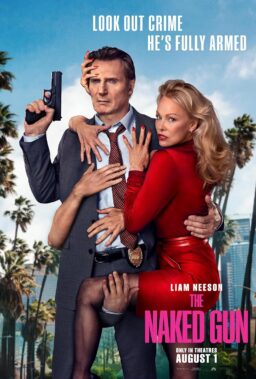PARK CITY, Utah–The question from the audience was pretty direct: “Did you draw on experiences in your own life in this performance?”
Robert Downey Jr., who among his other gifts is a physical comedian, seemed to implode, crouching over, his arms shielding him. Charlie Chaplin–whom he once played–might have approved of the pantomime. The body language said: You had to ask that, didn’t you?
Downey, whose career seems to be back on track after a seemingly endless series of drug troubles, stars in Keith Gordon’s “The Singing Detective” as a writer whose entire body is covered with painful eczema.
The film played on the Park City opening night of the Sundance Film Festival. His character’s face has so many pits, boils and eruptions that he calls himself the Pizza Man. Even the slightest movement is agony, and he mentally escapes to a parallel universe of film noir in which he imagines gangsters and private eyes and gun molls–who occasionally burst into song and dance numbers based on 1950s rock and roll.
The film is a much shorter version of the famous 1986 BBC series written by Dennis Potter, who himself suffered from an excruciating skin ailment. The screenplay was the last work he finished before his death.
Gordon directs unblinkingly, with closeups of the suffering hero, but the film is curiously resilient and not as depressing as it sounds–a brave spirit’s defiant thumb in the eye of disease.
Downey’s performance is remarkable in the way it works with the physical condition. At times his voice is choked and harsh, because it hurts to move his lips, and yet at other times he gets laughs with perfectly timed looks and grins and grimaces. Then there are scenes where in his imagination he is magically restored. Onstage, he kidded with the audience and with his co-stars Robin Wright Penn, Katie Holmes and Carla Gugino, but after the question referring to his troubled past, he joked, “An hour from now I’m gonna be drunk.” That didn’t get much of a laugh.
***
The Dude is writing his autobiography. Jeff Dowd, the movie publicist and producers’ rep who inspired “The Big Lebowski” by the Coen Brothers, says it will be titled Classic Tales and Rebel Rants from the Dude.
I ran into The Dude at the Sundance screening of “People I Know,” the new movie starring Al Pacino and very loosely based on the life of another famous publicist, Bobby Zarem of New York and Savannah, Ga. All you can say is, when it comes to the drug use of their two fictional alter-egos, Robert Downey Jr. finishes a distant third.
“It’s great writing this book,” The Dude enthused. “All I gotta do is look up stuff on Google and I find all my facts. Like I’ll type in a place I was, and the stories will remind me of stuff that happened there.”
His says his book is inspired by a statement of the novelist Gabriel Garcia Marquez: “People want to hear about events as they wish they had happened, and not as they did happen.”
***
The festival opened on a disappointing note Thursday night with a gala screening in Salt Lake City of “Levity,” Ed Solomon’s lugubrious parable about a killer who wants to redeem himself. You’d think a movie starring Billy Bob Thornton, Morgan Freeman, Holly Hunter and Kirsten Dunst would have moments of impact just by default, but the actors were boxed in by a maudlin screenplay, slowed down to a crawl.
Thornton plays a man who as a teenager killed a supermarket clerk, served 17 years in prison, and emerges looking curiously like a 60-year-old. He has long, straggly gray hair that’s a constant distraction, because it looks so spectacularly wrong. He returns to his old neighborhood, meets Freeman, who runs a storefront mission for troubled kids, and then encounters Hunter, the sister of his victim. Also hanging around is Dunst, as a troubled girl who attends nearby raves, gets drunk, passes out and attracts Thornton’s sympathy.
The movie takes place in one of those universes inhabited only by its key characters–plus of course the chorus of troubled kids, who are strewn “casually” about the set like the cowboys in Oklahoma. So small is this world that at midnight, in a darkened alley, Hunter’s son encounters his enemy, and then Thornton stumbles across the violent situation, and then Hunter herself turns up. Thornton, usually such a watchable and surprising actor, adopts the wrong emotional choice for this role: He’s a low-energy sad-sack, his conversation a mournful dirge. Flashes of wit by the others disappear into the black hole of his depression.
Before Sundance screenings, the directors often come out and say something like, “I hope you enjoy the movie.” Solomon (who wrote “Men In Black” but cannot be blamed for “Men In Black II“) gave the longest speech I have ever heard before a movie, 20 minutes or so, thanking even his lawyers and accountants and telling us he tried to write the story at 21 and again in his 30s before finally arriving at this version. He settled too soon.










